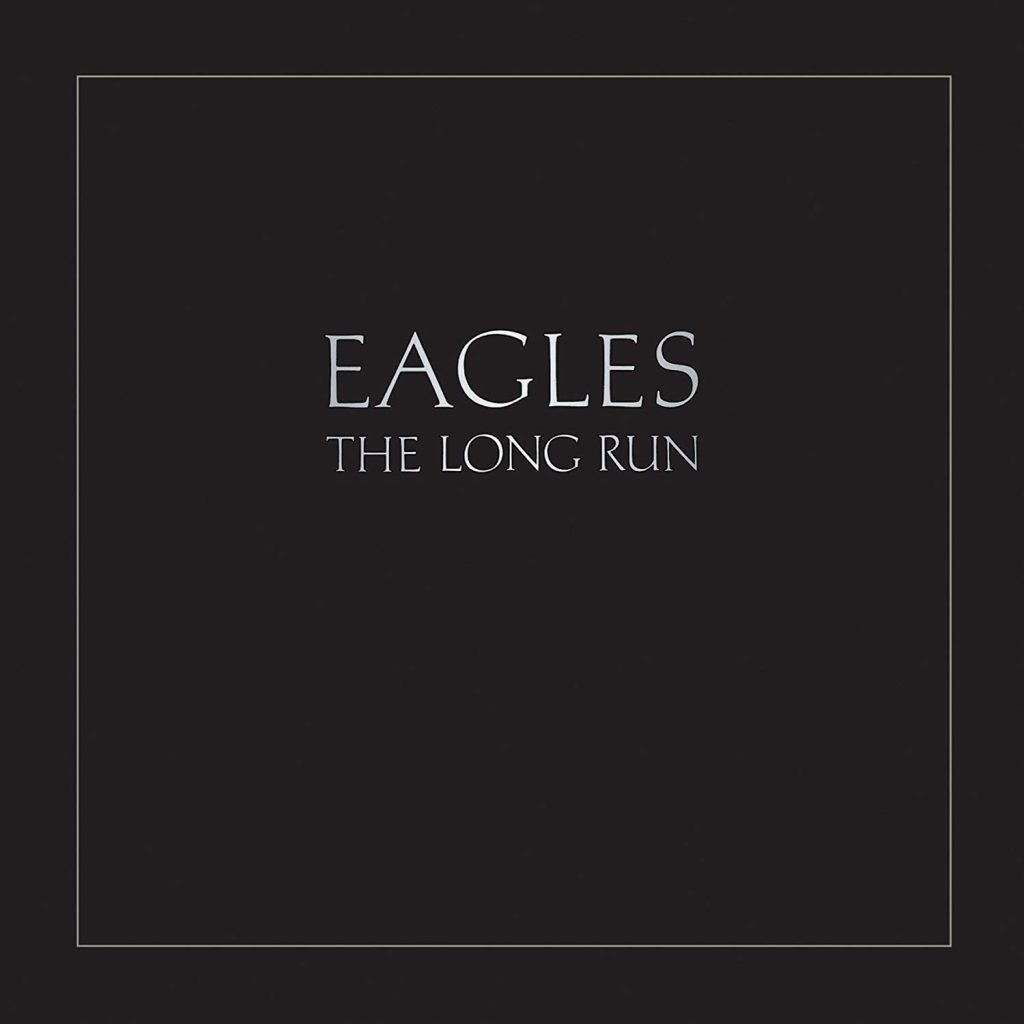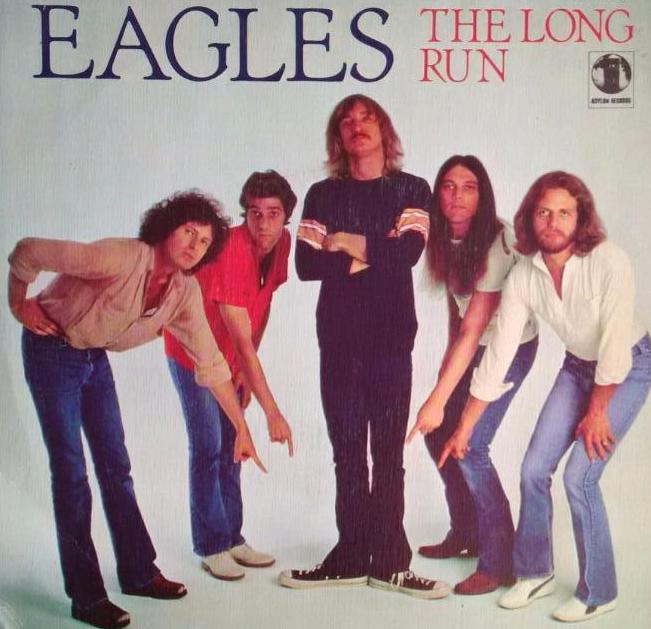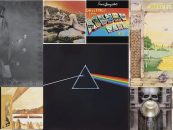 On March 1, 1978, Eagles entered the studio to record their new double album. One problem: They had zero songs written.
On March 1, 1978, Eagles entered the studio to record their new double album. One problem: They had zero songs written.
Exactly 18 months later, producer Bill Szymczyk put the finishing touches on the single album The Long Run, at 5:59 a.m. on September 1, 1979. The irony of the title is lost on no one.
“Those were brutal. Those were brutal,” guitarist Joe Walsh recalled. “We were touring at the same time we were in the studio. When we took a break from touring, we were in the studio. When we had to take a break from that, we went on the road. It just kept going crazy like that.”
“I agree 100 percent. It was a bitch,” Szymczyk acknowledged. “There was the constant pressure of topping Hotel California, which in retrospect was a big row to hoe. There was a lot of angst from everybody. It led to the most nitpicked album I’ve ever worked on.”
Listen to a live performance of the title track from The Long Run
“We just got to the point where we ran out of time, and also we ran out of patience,” guitarist Don Felder noted. “We had booked a tour and you can’t un-sell tickets. We tried for a double album and we had probably two or three things sitting around that were unfinished.”
“The Long Run was a pretty painful birth because we were like, ‘How the f**k are we going to top Hotel California?’ This is useless,” Walsh said. “We finally got over that and just made another album where we all played together in the same room. And that was The Long Run.”
The album was released on Sept. 24, 1979. There were lines at record stores, fans could mail off for a lyric sheet, it topped the charts and has held up well over the years.
Related: Behind the scenes for Hotel California
Those 18 months became a journey of musical string-gathering. “Everyone came in with a little. Mostly it was Felder and Walsh and Glenn [Frey]. ‘I’ve got this chord change, I’ve got this chorus.’ We just started stacking up these incredible tracks with no words,” Szymczyk recalled. “After 18 tracks, maybe we should write some words! When push came to shove, all of this in 18 months, the label was freaking out”
Watch the remastered video for “In the City”
With so little material at hand, why make such an ambitious stab at a double album? Physical Graffiti and other double albums had set a high bar, and the band knew that Fleetwood Mac was working on the double LP Tusk.
“Did you say Tusk? Yeah, we were in some serious competition with Fleetwood Mac at the time,” Szymczyk said. “It was two big albums, fighting it out with the other biggest band of the time. The competition between Fleetwood Mac and the Eagles originated from Rumours and Hotel California. We were both working on those albums at the same time.”
Even though there was some cross-dating going on between members of both bands, it didn’t stop the rivalry.
Related: Behind the scenes for Joe Walsh’s But Seriously, Folks
“They had their success with Rumours, we had ours with Hotel California. They went in the studio first and made it known they were going to make a double album. That was like throwing down the gauntlet. Then of course, Don [Henley] and Glenn, being the competitors that they are, said ‘We’re going to do a double album,’” Szymczyk said.
Szymczyk is known for his meticulous journals, so he’s able to pinpoint that he mixed “King of Hollywood” on Aug. 13, 1979, “Heartache Tonight” the next day, then “I Can’t Tell You Why,” “Teenage Jail,” “Those Shoes,” etc.
Watch a behind-the-scenes clip of the recording of “I Can’t Tell You Why”
Listen to a live performance of “Heartache Tonight”
The Long Run had three singles and sold a respectable seven million copies. Even the songs that weren’t singles became staples of radio and live sets—“In the City,” “Those Shoes,” etc.
Despite the painful birth and lack of material, there were leftovers. The instrumental tracks are somewhere in a vault to this day. Henley and Frey finished a song called “Too Much Drama” that was recorded by Mickey Thomas. The instrumental “Island of the Hidden Funk” resurfaced on Joe Walsh’s There Goes the Neighborhood as “Rivers of the Hidden Funk.”
“I actually wrote a couple of things for The Long Run, one of which we didn’t finish,” Felder said. “It was sort of a harder rock song. I got a call in the early ’80s for the movie Heavy Metal. I took this track I’d written and recorded for the Eagles that Joe and I were going to do. It was originally titled ‘You’re Really High, Aren’t You?’”
“That was one of the left-off 18 tracks. I remember it because of the title,” Szymczyk said. “‘You’re Really High, Aren’t You?’ That’s what Joe said to him when we recorded this. It just never got finished.”
“It was a funny, light, heavy rock song,” Felder continued. “I recorded it with a band in L.A., and rewrote the lyrics to it. It turned out as ‘Heavy Metal,’ which was a big success for me. I can only imagine if it had been me and Joe recording that for the Eagles.”
Listen to “Those Shoes”
Eagles’ To The Limit: The Essential Collection arrived in 2024, as a 3-CD set and as a deluxe 6-LP set on 180-gram vinyl. The title is available in the U.S. here, in Canada here and in the U.K. here.
Tickets to Eagles’ concerts at Sphere in Las Vegas are available at Ticketmaster and here.







3 Comments so far
Jump into a conversationIn 1979 a friend of mine owned a mobile recording studio (QL Mobile) inside a Ford van.
It had a SoundCraft 16 track board with a digital 16 track tape machine. He had rented a big mansion on South Bayshore Drive in Coconut Grove just a couple blocks down the street from Bayshore Studios where Bill Szymczyk was recording The Long Run. During the sessions Joe Walsh borrowed the van for a couple nights to lay down a couple basic tracks for the album. According to my friend, he played inside the house and came out to the enclosed garage to do some rough mixes. When Joe finished with the van, he left a piece of duct tape on the console board that read: “Sardine Sound Recording” …lol
I stand corrected on one point of the story and that is that Buddy Thornton, one of the engineers at Bayshore did the rough mixes for Joe on the recording.
Probably a good thing “The Long Run” didn’t turn into a double album. “Tusk” did, and at least in my opinion, shouldn’t have been. There was a lot of throwaway material on that bloated release.